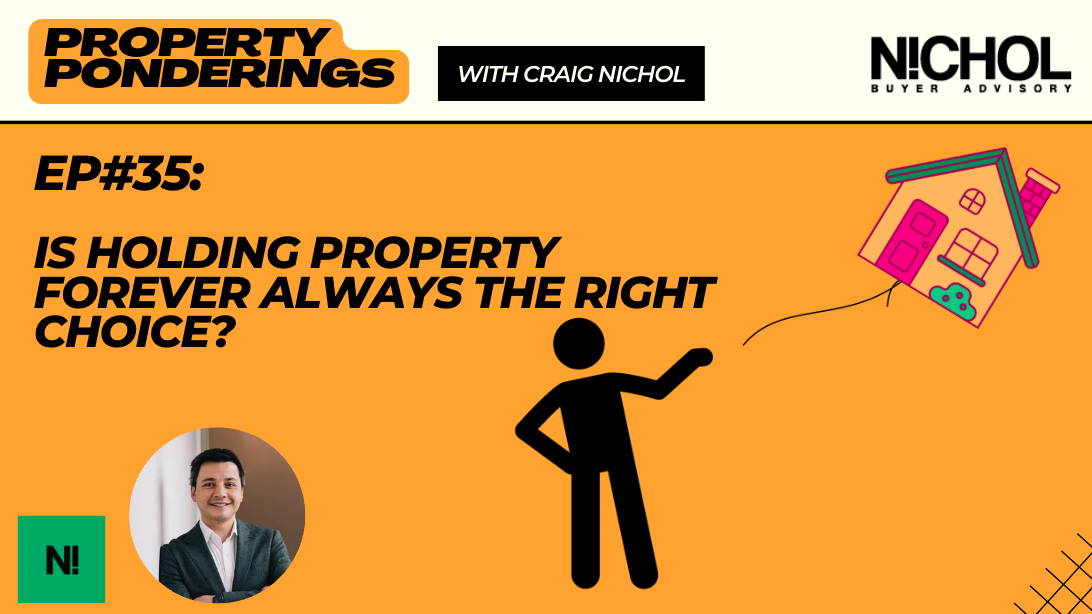Is Holding Property Forever Always the Right Choice?
Is Holding Property Forever the Best Strategy?
When it comes to property investing, one question looms large: “Is holding property forever the ultimate strategy?” While the idea has its merits, it’s not a one-size-fits-all answer. Let’s dive into the long-term advantages of holding property, the challenges that come with it, and the situations where selling might actually be the smarter move.
The Power of Holding Property Long Term
Holding property for the long term is often celebrated as the cornerstone of wealth creation—and for good reason. Australian property markets, particularly in capital cities, have shown consistent growth over decades.
Take Melbourne as an example. In 1993, the median house price hovered around $125,000. By 2023, it had surpassed $900,000, a testament to the power of long-term capital growth. This is driven by factors like:
Population Growth: Increased demand in key urban areas.
Limited Supply: Land scarcity in desirable locations.
Inflation: Boosting property values over time.
Key Benefits of Long-Term Holding
Compounding Growth
The magic of compound growth magnifies wealth as property values increase exponentially over time.Avoiding Transaction Costs
Selling a property comes with hefty expenses like agent fees, capital gains tax (CGT), and stamp duty on new purchases. Holding allows you to sidestep these costs.Passive Income Potential
Over the years, rents typically rise while mortgage repayments remain stable. This can transform your property into a reliable source of income.
The Downsides of Holding Forever
While long-term holding has undeniable benefits, it’s not always the right move for every investor or every property. Here are some scenarios where selling could make more sense:
Underperforming Properties
Not all properties are created equal. If a property’s location or condition limits its growth potential, holding onto it might hinder your financial progress.
Signs of an Underperforming Property:
Growth below the market average.
Persistent negative cash flow with no signs of improvement.
High vacancy rates or declining rental demand.
Taking Profits Off the Table
In some cases, selling a high-performing property to lock in gains can be a strategic move. This is especially true if you’re nearing retirement or seeking to reduce financial stress by paying down debt.
Changing Life Circumstances
Life events—such as a career change, relocation, or unexpected expenses—may require selling to free up funds.
Opportunity Cost
Holding property ties up capital that could potentially deliver better returns elsewhere. For example, selling in a booming market and reinvesting in undervalued opportunities could enhance your portfolio’s performance.
The Hidden Costs of Selling
Selling is not without its drawbacks. Understanding the financial impact is crucial before making a decision.
Capital Gains Tax (CGT)
If the property isn’t your primary residence, up to 45% of your gains may be owed to the ATO.Stamp Duty on New Purchases
Reinvesting in property means absorbing significant upfront costs.Agent Fees
Commissions for agents can eat up 2-3% of your property’s sale price.Lost Opportunity for Compound Growth
Selling means forfeiting future capital growth on that asset.
When to Hold vs When to Sell
Hold If:
Your property is in a high-demand, high-growth area.
You’re in the accumulation phase and can leverage equity for further investments.
It generates solid rental income with tax advantages like depreciation.
Sell If:
The property is underperforming with limited potential for improvement.
You need to de-leverage or fund other priorities.
The opportunity cost of holding outweighs the benefits.
Final Thoughts
As with most investment strategies, there’s no universal answer. The decision to hold or sell depends on your property’s performance, market conditions, and your personal goals. As financial author Morgan Housel reminds us, “The trick is to stop chasing what others are doing and find the game you’re playing.”
By critically assessing your portfolio and running the numbers, you can determine whether holding on or letting go aligns with your broader investment strategy.
Ready to optimise your property portfolio? Whether you’re considering holding, selling, or reinvesting, take the time to weigh up the pros and cons carefully. Strategic decisions today will shape your financial future tomorrow.

